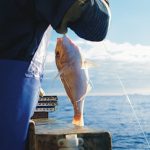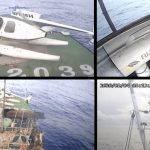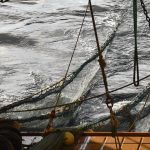Further help for Scottish aquculture, including the possible lifting of SEPA fees in Shetland, has been promised by Environment Minister Roseanna Cunningham following a ‘constructive meeting’ with industry.
The move, encompassing large companies as well as small and medium-sized ones, follows a £1.5 million support package for SMEs following the outbreak of Infectious Salmon Anaemia (ISA) earlier this year.
Additionally, the Scottish Government also today confirmed that money from the European Fisheries Fund is available to help eligible companies to develop and grow their aquaculture.
Ms Cunningham said:
“With a value of around £324 million to our economy, supporting 5,000 jobs, I am committed to the ongoing success of salmon farming in Scotland.
“We have already announced a support package for those small and medium-sized enterprises, affected by the recent outbreak of Infectious Salmon Anaemia (ISA).
“I also expect to launch a new Strategic Framework for Scottish Aquaculture in the near future, which has been developed in close consultation with the industry.
“The new Framework will set out how Government and industry will work together to foster the sustainable growth of aquaculture in Scottish waters.
“I am exploring the possibility of temporarily lifting SEPA’s fees for fish farms in the affected areas of Shetland.
“It is vital that we do everything we can to support Scottish aquaculture.”
Speaking after the meeting, Phil Thomas, Chairman of the SSPO, added:
“It was a constructive and useful meeting that recognised that the industry in Shetland needs to continue to develop, notwithstanding the recent setback as a result of the occurrence of ISA.”
In the meeting, Ms Cunningham also agreed to raise with Minister for Enterprise Jim Mather, the salmon industry’s interest in securing support for skills development and training support for employees in companies in Shetland, and elsewhere, which have been affected by ISA.
Also attending the meeting, which had been sought by the SSPO following the announcement of the financial support package, was SSPO Chief Executive Scott Landsburgh.
The aquaculture strand of EFF is available to support and fund the following types of developments:
Fish farm cages
New equipment geared towards environmentally sustainable fish farming practices
Increased production of high value species
Better production methods, delivered through more efficient and effective gear
Equipment or modernised methods which deliver improved environmental outcomes
Investing in enhanced health and safety for workers in the aquaculture industry
The total amount of funding available for aquaculture development projects over the lifetime of the EFF scheme, which runs until 2013, is approximately £17 million. This is a competitive fund and all applications are assessed against qualifying criteria.
Aquaculture companies throughout Scotland are invited to apply for financial support through EFF to support the development and growth of their businesses.
In the Highlands and Islands:
Small and Medium sized companies (SMEs) can receive up to 60 per cent of the costs of their total projects from the public pot
For larger companies, they may receive up to 30 per cent of total project costs
In Lowland Scotland:
Small and Medium sized companies (SMEs) can receive up to 40 per cent of the total costs of their projects from the public pot
For larger companies, they may receive up to 20 per cent of total project costs








